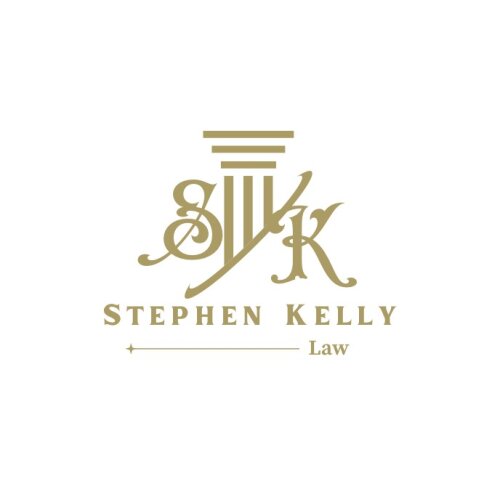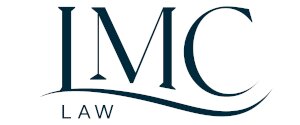Best Foreclosure Lawyers in Ireland
Share your needs with us, get contacted by law firms.
Free. Takes 2 min.
Free Guide to Hiring a Real Estate Lawyer
Or refine your search by selecting a city:
List of the best lawyers in Ireland
About Foreclosure Law in Ireland
Foreclosure in Ireland primarily concerns the processes involved when a borrower defaults on their mortgage payments, leading to the lender seeking to repossess the property secured by the mortgage. Unlike some countries, Ireland does not use the term "foreclosure" in the traditional sense; instead, it refers to "repossession" processes under mortgage default. Due to economic shifts and financial crises, repossession has been a significant issue in Ireland, often involving complex legal proceedings to resolve disputes between lenders and borrowers.
Why You May Need a Lawyer
Several situations may necessitate seeking legal advice in the context of foreclosure or repossession in Ireland:
- If you have received a letter from your lender indicating a potential repossession or legal action due to missed payments.
- If you need clarity on your rights and obligations under your mortgage agreement.
- If you wish to negotiate a restructuring of your debt or potentially contest a lender's claims.
- If you wish to understand the implications of voluntary surrender vs. court-ordered repossession.
- If you are facing eviction from your mortgaged property.
Legal professionals can assist in interpreting the complexities of Irish repossession laws, acting on your behalf in negotiations, and representing you in court if necessary.
Local Laws Overview
In Ireland, several key legislative frameworks govern mortgage repossession:
- Land and Conveyancing Law Reform Act 2009: This act reformed the law about mortgages and repossession. It outlines the procedures that lenders must follow to acquire a court order for repossession.
- The Code of Conduct on Mortgage Arrears (CCMA): This code sets out the process banks must adhere to before initiating any legal proceedings for repossession, including following the MARP (Mortgage Arrears Resolution Process).
- Central Bank Regulations: Various regulatory requirements issued by the Central Bank of Ireland aim to protect consumers and ensure lenders engage with borrowers fairly.
Borrowers have rights, including the right to be treated fairly, the right to be given sufficient notice of proceedings, and the right to appropriate assistance during financial difficulties.
Frequently Asked Questions
What is the MARP process?
The Mortgage Arrears Resolution Process (MARP) is a series of steps lenders must observe, including assessing a borrower's financial situation and proposing alternative repayment arrangements before pursuing legal action for repossession.
Can I reclaim my home once repossession proceedings have started?
Once proceedings have started, reclaiming your home depends on reaching an agreement with the lender, such as clearing arrears or restructuring the loan. Legal advice can help navigate these options.
What are my rights if I'm unable to repay my mortgage?
Under Irish law, you have the right to be treated fairly, to be given adequate notice, and to have the opportunity to engage in the MARP process before repossession proceedings are initiated.
How long does the repossession process take?
The process can vary in duration, but it generally involves several stages, including warning letters, adherence to the MARP process, court proceedings, and possible appeals, which can take months or even years.
Can I negotiate directly with my lender without a lawyer?
Yes, you can negotiate directly; however, having a lawyer can provide guidance, enhance your negotiation strategy, and lend weight to your position.
What happens after my property is repossessed?
After repossession, the lender will sell the property to recover the outstanding debt. If the sale proceeds don't cover the entire debt, you may still be liable for the remaining balance.
Can arrears on my mortgage affect my credit rating?
Yes, falling behind on mortgage payments can negatively impact your credit rating and affect your ability to borrow in the future.
What should I do if I receive a court summons for repossession?
Seek legal advice immediately to understand your options and prepare an appropriate response or defense.
Are there any government supports available?
Several supports are available, such as the Mortgage Arrears Resolution Process and advisory services. Legal aid may be an option depending on your circumstances.
Can I prevent repossession through bankruptcy?
While bankruptcy discharges unsecured debts, it doesn't automatically prevent repossession of secured assets like a home. Legal advice is crucial to explore such options and their implications.
Additional Resources
- MABS (Money Advice and Budgeting Service): Offers free, confidential, and independent advice and assistance to those in debt.
- The Central Bank of Ireland: Provides consumer protection information and guidelines.
- Free Legal Advice Centres (FLAC): Delivers free legal advice and advocacy for those with limited means.
- Citizens Information: Offers guidance and information on housing and social welfare supports.
Next Steps
If you find yourself in a situation where legal assistance is required, consider the following steps:
- Document Everything: Keep detailed records of all communications with your lender and any relevant financial documentation.
- Seek Initial Advice: Utilize free resources such as MABS or Citizens Information for initial guidance.
- Consult a Solicitor: Contact a lawyer specializing in foreclosure or repossession law for a tailored legal strategy.
- Engage with Your Lender: Open communication with your lender and explore restructuring options as soon as possible.
Act promptly to ensure you understand your rights and options, and do not hesitate to reach out for professional advice to navigate the legal landscape effectively.
Lawzana helps you find the best lawyers and law firms in Ireland through a curated and pre-screened list of qualified legal professionals. Our platform offers rankings and detailed profiles of attorneys and law firms, allowing you to compare based on practice areas, including Foreclosure, experience, and client feedback.
Each profile includes a description of the firm's areas of practice, client reviews, team members and partners, year of establishment, spoken languages, office locations, contact information, social media presence, and any published articles or resources. Most firms on our platform speak English and are experienced in both local and international legal matters.
Get a quote from top-rated law firms in Ireland — quickly, securely, and without unnecessary hassle.
Disclaimer:
The information provided on this page is for general informational purposes only and does not constitute legal advice. While we strive to ensure the accuracy and relevance of the content, legal information may change over time, and interpretations of the law can vary. You should always consult with a qualified legal professional for advice specific to your situation.
We disclaim all liability for actions taken or not taken based on the content of this page. If you believe any information is incorrect or outdated, please contact us, and we will review and update it where appropriate.
Browse foreclosure law firms by city in Ireland
Refine your search by selecting a city.











